Related Research Articles
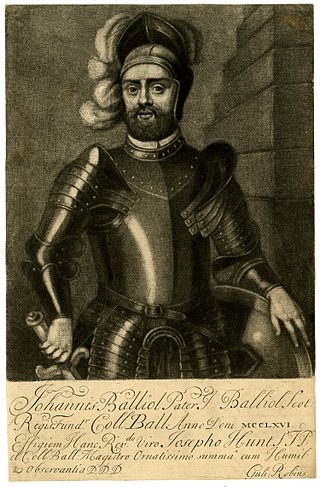
John de Balliol was an English nobleman, belonging to the House of Balliol. Balliol College, in Oxford, is named after him.
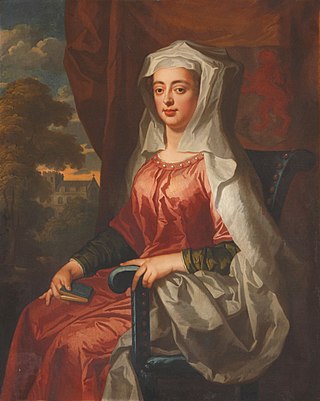
Dervorguilla of Galloway was a "lady of substance" in 13th century Scotland, the wife from 1223 of John de Balliol and mother of John I, a future king of Scotland.

William Comyn was Lord of Badenoch and Earl of Buchan. He was one of the seven children of Richard Comyn, Justiciar of Lothian, and Hextilda of Tynedale. He was born in Scotland, in Altyre, Moray in 1163 and died in Buchan in 1233 where he is buried in Deer Abbey.
William Comyn may refer to:

Alexander Comyn, 2nd Earl of Buchan was a Scoto-Norman magnate who was one of the most important figures in the 13th century Kingdom of Scotland. He was the son of William Comyn, Lord of Badenoch, and Marjory, Countess of Buchan, the heiress of the last native Scottish Mormaer of Buchan, Fergus. He was the chief counsellor of Alexander III, King of Alba (Scotland) for the entire period of the king's majority and as Scotland's leading magnate, played a key role in safeguarding the independence of the Scottish monarchy. During his long career, Alexander Comyn was Justiciar of Scotia (1258–1289), Constable of Scotland (1275–1289), Sheriff of Wigtown (1263–1266), Sheriff of Dingwall (1264–1266), Baillie of Inverie and finally, Guardian of Scotland (1286–1289) during the first interregnum following the death of Alexander III. In 1284 he joined with other Scottish noblemen who acknowledged Margaret of Norway as the heiress to King Alexander. He died sometime after 10 July 1289.
John Hastings, 1st Baron Hastings, was an English landowner, soldier and administrator who was one of the Competitors for the Crown of Scotland in 1290 and signed and sealed the Barons' Letter of 1301. He was Lord of the Manor of Hunningham.
Reginald le Chen or Cheyne was the Chamberlain of Scotland from 1267 to 1269. He was the Baron of Inverugie.

William de Valognes also known as William de Valoynes, was the only son of Philip de Valognes and was granted a charter of the baronies of Panmure and Benvie by King William the Lion, previously granted to his father. On his father's death in 1215, William de Valongnes was made High Chamberlain to Alexander II. He died in 1219 and was interred at Melrose Abbey.

Sir Henry de Baliol of Cavers was Chamberlain of Scotland.

Clan Cumming, historically known as Clan Comyn, is a Scottish clan from the central Highlands that played a major role in the history of 13th-century Scotland and in the Wars of Scottish Independence. The Clan Comyn was once the most powerful family in 13th-century Scotland, until they were defeated in civil war by their rival to the Scottish throne, Robert the Bruce.
Sir Andrew Moray, Lord of Petty was Justiciar of Scotia.
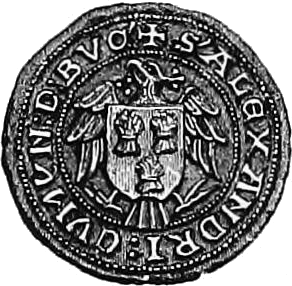
Alexander Comyn, Sheriff of Aberdeen was a fourteenth-century Scottish nobleman. He was a younger son of Alexander Comyn, Earl of Buchan. The latter died in 1290, whereupon the earldom of Buchan was inherited by Alexander's elder brother, John.
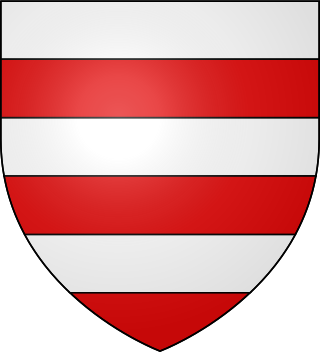
Nicholas de Soules, Lord of Liddesdale and Butler of Scotland, was a 13th-century Scottish Border noble.
Kilbride Castle, also known as Comyn's Castle, was a castle that was located to the north of East Kilbride, South Lanarkshire, Scotland.
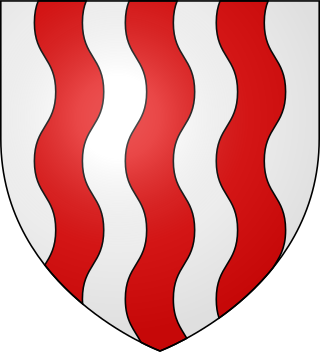
de Valognes is a family name of two distinct powerful families with notable descendants in the centuries immediately following the Norman Conquest. Although a connection between them has been inferred by some authorities, this is not supported by positive evidence.
Sir Edmund Comyn of Kilbride was a 13th- and 14th-century Scottish noble. He was a younger son of William Comyn of Kilbride and Euphemia de Clavering.
David Comyn, Lord of Kilbride was a son of William Comyn, Lord of Badenoch, later the Earl of Buchan, and inherited the barony of Kilbride from his wife Isobel, the daughter of William de Valognes. He died in 1247.
The Justiciar of Galloway was an important legal office in the High Medieval Kingdom of Scotland.
Sir Walter de Moray, Lord of Petty, Bracholy, Boharm, Arteldol and Bothwell, Justiciar of Lothian was a 13th-century Scottish noble.
Events from the 1260s in the Kingdom of Scotland.
References
- Taylor, Alice. The Shape of the State in Medieval Scotland, 1124-1290 - Oxford Studies In Medieval European History, Oxford University Press, 2016. ISBN 9780191066108.